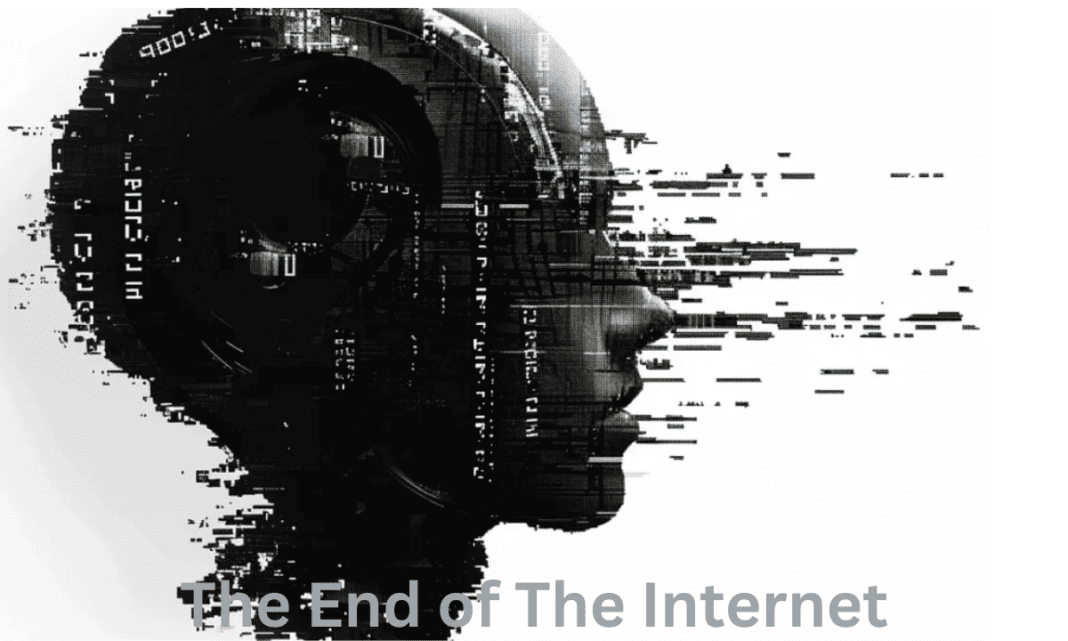The End of The Internet
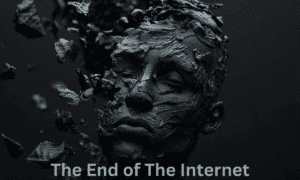
There Will Soon Be No More Internet, the End of The Internet. Domain Name System Fragmentation!” Incompatible Protocols on the Internet! Endless walled gardens and filters! An EU researcher has issued a dire warning, stating that nefarious countries and corporations are ripping apart the internet.
According to a researcher who received funding from the European Union, the current state of the internet could be irretrievable. Worst case scenario: our beloved “network of networks” reverts to its original state as a collection of individual networks. And we’ll all be to blame.
Nearby Internet Dystopia
“The idea of an open and global internet is progressively deteriorating and the internet itself is changing,” argues Konstantinos Komaitis, author of the paper “Internet Fragmentation: Why It Matters for Europe” launched Tuesday by the EU Cyber Diplomacy Initiative and author of the essay.
To sum up, bigger geopolitical forces, which may be beyond everyone’s control, are influencing the open and global character of the internet. As a result, “Internet fragmentation must be seen both as a driver and as a reflection of an international order that is increasingly growing fragmented,” Komaitis analyzed.
An end device on the internet can exchange packets with any other end device on the internet, regardless of which network each of them is on; this has always been the goal of the internet, according to the original vision. Because of its decentralization, the Internet was always intended to be accessible to everyone regardless of socioeconomic status.
The internet has persisted for an astonishingly long period for such a poorly managed endeavor, even as these ideological and technical objectives have manifested themselves inconsistently in practice (NAT……..).
However, according to Komaitis, this might not necessarily be the case.
The author points out that the internet faces fragmentation threats from various directions, including commercial pressures, technological advancements, and government meddling. Komaitis singled out a handful of offenders:
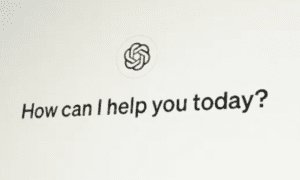

The Domain Name System (DNS) is the central database that associates IP addresses with domain names. Even though ICANN handles this stuff worldwide, anybody might put up their root server if desired. A handful have attempted to do so: the Digital Object Architecture (DOA) of the International Telecommunications Union and the Network and Information Systems of Europe aimed to displace the global DNS.
Problems with translating IPv4 addresses to IPv6 addresses have plagued the internet’s transition from IPv4 to IPv6, despite efforts to do so spanning more than 20 years. The adoption of IPv6 addresses is steadily increasing, but there is still a long way to go, writes Komaitis.
He points out that out of all economies, “Just 32 economies” have IPv6 adoption rates higher than 30%. He says there can be no guarantee of end-to-end connectivity across users of different internet versions, unless IPv6 is fully used.
Internet content blocking: Governments are getting more involved in controlling what their citizens may access online using domain name system (DNS) filtering, IP blocking, distributed denial of service (DDoS) assaults, and removing search results. Komaitis stated that China is the most egregious case because of its “sophisticated filtering system that can control which content users are exposed to.”.
An explanation of how peering agreements work: The Internet was born out of a series of bilateral agreements that let huge Internet service providers and smaller ones share the same address space. But big telecoms are increasingly putting their traffic ahead of smaller competitors.
Although South Korea attempted to reorganise these accords in this way, the outcome was market confusion and burden, according to Komaitis’s writing, the European Union is now considering other options.
Wall gardens, data localization measures (such as GDPR), and continuing government interest/interference in open standards organizations are other mitigating factors that Komaitis mentioned.
The European Union paid for this summary; what does it imply for them? In addition to its previous commitment to provide universal internet access by 2030, the Union has also promised to block any efforts by private companies or governments to limit or prioritize internet traffic. In addition, it has joined other governments in pledging to ensure the Internet is “open, global and interoperable,” just like the United States.
Mastering Quantum Computing: The Key to the Universe’s Mysteries
Consequently, the European Union must decide whether to support its promises.
“Going forward, Europe needs to decide: do they want a fragmented, limited-choice internet or an open, global, interoperable internet?” As stated by Komaitis in his writing.
Our familiar experience with the internet might soon be over.
The End of The Internet
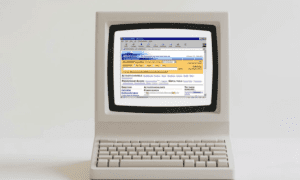

I will tell you about some changes I’ve seen and where I see us going, and it won’t be a nice picture, I promise.
Sure, there’s a bright side to this, but it’s also the kind of thing that most people won’t be thrilled about.
Therefore, let’s temporarily disconnect the internet from Big Ben and analyze it further. Absolutely! Just be careful not to drop it!
Prediction AI Is On The Way. Is Everyone Prepared (Including You)?
IT Swarm World Wide Web
Digital Space
As a species, we have grown to rely on the internet without question, and we have even come to embrace its many missteps as they have occurred over the years.
Strict Rules: Done.
Truth manipulation and censorship: Yes.
Ensuring privacy and preventing tracking: Yes.
It’s all advertisements: I am thrilled!
to top it all off…
Cookie Banners Mandated By The EU
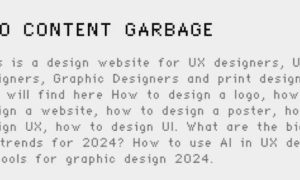

Banner for cookies
In the history of the web, this ranks among the most disastrous events.
The Key Changes
This was the ’90s for me; in 1997, I finally got online. Downloading this article on that 33600 kbit modem would have taken more than five minutes.
The 1990s were a time of extreme freedom. Nothing was off-limits, and anyone could even publish hateful content online. Altavista, obnoxious GIF ads, and censorship were nonexistent.
To put it another way, Altavista was similar to Google in that it required you to master specific prompt strategies before you could get any effective results. Does this ring a bell?
Rewind Pendant: In the Tech World Right Now, Something Absolutely Dumber is Happening.
The Altavista Web Search
Around the turn of the millennium
Animated Flash websites ruled the early 2000s, a creative heyday for designers everywhere. There was a permanent shift, like the internet, at that time.
Even while Google’s search engine had been in development since 1998, it wasn’t until the years 2000 and 2001 that it took off. Mark Zuckerberg, a former Harvard student, founded Facebook in 2004. Our grandparents are the ones who are most familiar with it today.
Google began delivering advertising in October of the year 2000. Delivering “relevant” advertising to users through exact activity tracking altered the course of the internet irrevocably.
After falling behind for seven years, Facebook finally introduced its advertising program in 2007.
Online privacy was eroded due to all this tracking, which helped advertisers sell more relevant items.
“Like” Button on Facebook
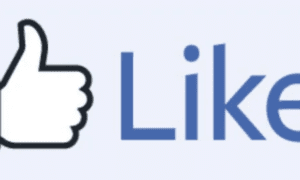

With the click of a button, the web was transformed.
The Like button was later introduced by Facebook in 2009.
An embeddable code snippet that enables you to express approval of content outside of Facebook. In the background, it maps out people’s internet habits in great detail by tracking their online behavior.
At This Point, Everything Changed.
website content optimization
Search engine optimization (SEO) trend
A multi-billion dollar industry emerged because search engines were the only way to get found. Optimization for Search Engines, often known as SEO.
When Considering What’s to Come, This Section Becomes Even More Crucial.
Some of the methods to “rank higher” included purchasing links from “link farms,” exchanging links with other sites, paying for placement on “high ranking” sites, and… content.
The original intent of search engine optimization (SEO) content was to make the bots believe that a website had a lot of helpful information by stuffing lengthy paragraphs of frequently tiny text with keywords.
Fluff Produced by Search Engines
They started taking over all goods written in a style no person would want to read or write.
Before whole “blogs for robots” began to appear, every main page included SEO-only parts. For the sake of gaming the algorithm and amassing more views, hundreds of meaningless postings are crammed with keywords.
If you were to stumble upon such a site, you would immediately leave since we perceive it as poor SEO material.P
Pixelated Data Leaks Harming Robot Head
Hello, AI era!
We are now in the era of artificial intelligence when new types of robots are scouring the web for knowledge rather than just indexing it.
In a recent lawsuit, the New York Times accused OpenAI of plagiarizing full articles in its comments. Thousands of pieces of content are infringed.
Massive demonstrations and data poisoning techniques were developed in response to Midjourney’s practice of scraping most online photos.
With the introduction of Bing’s AI integrations, you can get your questions answered without visiting a website.
Web Browser Are Over the Web
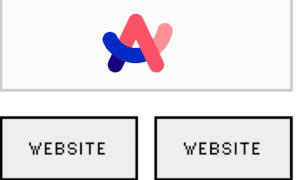

Arc, a beloved business attempting to rethink browsers, is taking this concept to the next level. The browser’s primary function will shift from browsing the web to executing tasks automatically through bots.
However, this strategy has a flaw.
The AI-induced internet abyss
Internet loop’s demise
No one will pay to advertise on a website that doesn’t have any visitors.
If that happens, the bot will stop receiving fresh material from this page, producing lower-quality outputs. And the cycle continues.
What I Anticipate Taking Place
There will soon be two distinct sections of the internet.
The goal of the AI-generated content, which will be accessible for free, is to increase interaction, much like the SEO pieces of a decade ago.
Realizing an article they clicked on was a keyword farm for a search engine made most consumers stop reading.
Most possibilities will disappear due to AI, and things will be different.
Internet content created by AI vs. content written by humans
A Quality Safety Net
A paywall will encircle the remaining portion of the web.
That content will be of higher quality and created largely by humans; indeed, there will be some AI assistance, but it will be minimal and probably well-annotated.
For example, in my instructional postings, we use AI to create graphics. Images are marked as having originated from AI, but not text—that must have originated from a person. Open and honest.
Now, this paywall can be a real thing where you have to pay a little money to access better information, or it can just be an email login where you have to pay to sign up for newsletters.
I understand.
Prohibition of Bots
Less high-quality material may appear in search results due to the massive effort to stop robots from harvesting content.
The result is that free internet will no longer be useful. Those already struggling financially will have an even tougher time closing the gap and improving their life if they are relegated to learning from subpar material because they cannot afford higher-quality options.
Artificial intelligence will further water down AI-generated information by summarizing it for other, less active users.
Overall, it’s a terrible paradigm that won’t work in the long term and will hurt people everywhere.
I mean, it’s convenient for the time being, isn’t it?
Web 3.0
We are already beginning to hide our content behind a login wall and disable bot scraping, so the internet is set to undergo a major transformation. You can see that every industry is following suit with optimization, even my beloved design:
The Era After Design
What is the rebranding of Dribbble portends for the industry’s future? Nobody in 2024 gives a hoot about appearing in organic search results; instead, they rely on more direct marketing strategies. Everything will speed up as a result.
As a reader, I am incredibly grateful to you. If you want to read my next posts, which combine ideas from psychology, social issues, education, business, biographies, women, leadership, tourism, climate change, and many more, you should follow me. You may sign up for my email list if you want to receive notifications whenever I post a new article.


